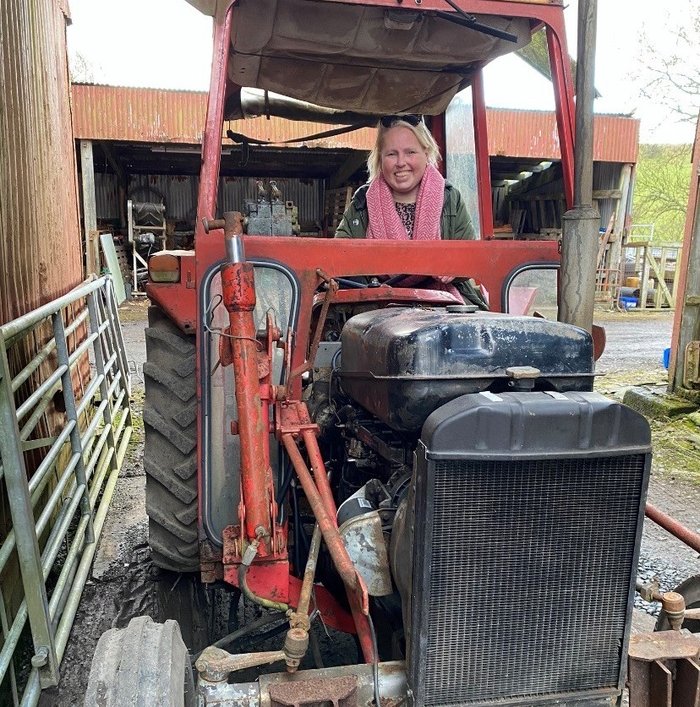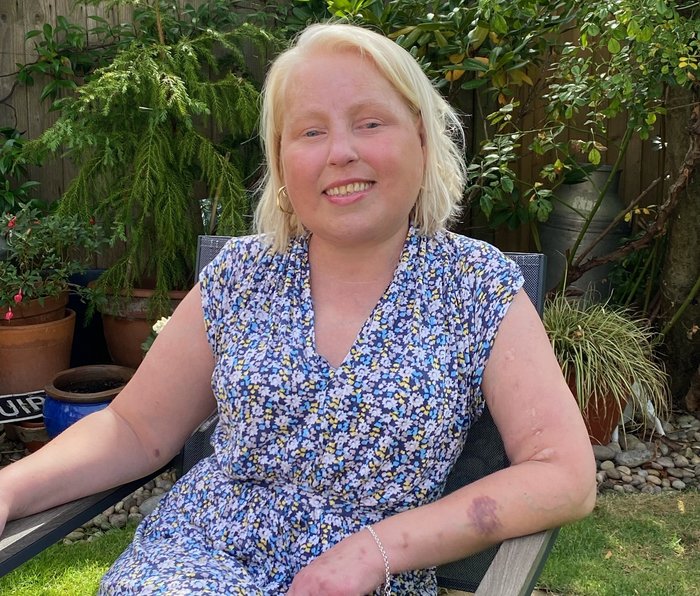"I was the youngest person in UK to have a simultaneous pancreas/kidney transplant, but it went spectacularly wrong."
"When I was 15 months old, I got e coli, and went into multi-organ failure. I was put on plasma exchange and diagnosed with atypical HUS rather than usual HUS which is usually associated with an e coli infection. I was one of the first to survive the severity of the e coli infection. The multi-organ failure also resulted in diabetes and the aHUS and diabetes were then managed with medication and diet.
"In 2003 I went onto peritoneal dialysis. In 2006, aged 16, I got a phone call for a transplant. I was the youngest person in UK to have a simultaneous pancreas/kidney transplant, but it went spectacularly wrong, and I was in an induced coma for two months. There was a tear in the pancreas and that was leaking fluid into my stomach and the kidney went into rejection and failed after just four months. The doctors believed the transplant failed because the aHUS returned in the transplanted kidney, though they still debate today whether or not that is definitely what happened.
"After I’d recovered, I was put back on dialysis; I now do overnight haemodialysis at home. I was also offered the drug eculizumab a few years ago and I don’t know if it is still the case but when I was offered it the hospital had to put together a case for it to be used*. I am not on eculizumab now, but they are considering giving it to me if or when I have another transplant."
*Suspected cases of aHUS are assessed by the National aHUS Service in Newcastle who determine if eculizumab is an appropriate treatment, based on the guidelines set by NHS England.

"A boring life would good!"
"One of my biggest challenges day to day is balancing drinking enough fluid, because of the diabetes, with being on a fluid restriction because of the dialysis. I am always tired – I wake up tired and can fall asleep at the drop of a hat. My health has deteriorated quite a bit since I had Covid-19. I tried going back to work but I was exhausted so I haven’t managed it.
"Looking forward, I would love to have another transplant that works. It would be amazing not to think about diet (as much), not to have contradictory fluid restrictions, to be able to go abroad without having to sort dialysis, and not to have to think ten steps ahead of what I am doing day. Going away, even for a weekend, just isn’t possible at the moment, as I know I don’t feel well if I have one night without dialysis.
"In future, hopefully I’ll feel less tired, maybe go back to work, that’d be really nice. Get back to living as normal a life as possible. A boring life would good!
"When you’re living with a chronic condition, kidney failure or any other condition, there are awful days and good days and just because you’re in one doesn’t mean the next won’t be better.
"Just because someone can’t join you for dinner one day, please don’t stop asking and including them in your life. Don’t rule them out, even if the answer keeps being no, keep asking. A good support network can make the world of difference.
"When I was first diagnosed with aHUS the Young Adult Kidney Group (YAKG) didn’t exist, there was no group that I could talk to and little public knowledge about kidney failure or diabetes. That is changing now, thank goodness.
"I don’t know any different, I don’t know what ‘healthy’ is."
"Kidney failure is something I’ve lived with my whole life. I don’t know any different, I don’t know what ‘healthy’ is. I guess for me it is just normal. But aHUS is just a big question mark overhanging everything in my life.
"It is a very rare condition, so that means research is less likely to be done. Scientists have to deal with so much bureaucracy and lack of funding, but their research into one condition might unlock knowledge that would help someone with a different condition and be that golden ticket for them. I’m hopeful that more aHUS research in the future could open up more possibilities for those of us who are living with it."
